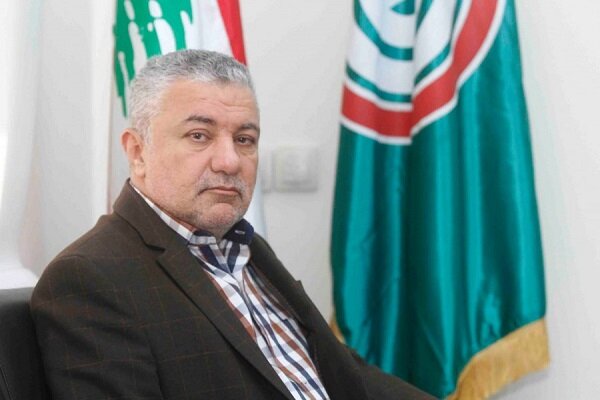“Washington’s intervention in the internal affairs of Lebanon has always been negative because the US’ general approach in Lebanon and the region and perhaps in the world is to lean towards the Zionist regime; a regime has always been eyeing to capture our land,” Member of Lebanon's parliament Mohamed Nasrallah told Mehr News on Thursday.
"The long delay in the formation of a cabinet in Lebanon reveals the existence of regional and international interventions," he added.
On the other hand, he noted, “We are witnessing a new phenomenon in Lebanon called the Club of Former Prime Ministers and their interventions in the process of forming the cabinet.”
Nasrallah said, “In any case, I must say that public opinion in Lebanon is vigilant and recognizes the reality, and we hope that the long-awaited process of forming a cabinet in this country will end as soon as possible.”
Nasrallah said, "We are sorry to see that Lebanon does not have a government in the current difficult political and economic situation. There is no good news about the formation of a cabinet in Lebanon. Mentioning some names in this regard is just speculation without real support.”
Regarding France's plan to help form a cabinet in Lebanon, he said, "We hope that France's plan is really aimed at helping Lebanon.”
Although Beirut is accustomed to receiving help from foreigners in such cases, and even the success of the said plan will not lead to Beirut’s real independence."
Normalization with Zionists dismissed
The Lebanese lawmaker also commented on the recent developments around US-mediated talks for the demarcation of borders between Lebanon and the occupied Palestinian lands.
Speaker of the Lebanese Parliament Nabih Berri announced that Lebanon and the Israeli regime have agreed to a framework for US-mediated talks to settle some longstanding border disputes.
Berri, however, said, “This is a framework agreement and not a final one.” He added that discussions would be held under the auspices of the United Nations at a base near the UN-monitored boundary, known as the Blue Line.
Nasrallah maintained that the agreement that Berri talked about “is in fact a summary of the 10-year efforts, which eventually led to the development of a framework as the basis for the border demarcation negotiations between Lebanon and occupied Palestinian lands.”
“This agreement is based on the 1996 agreement and International Resolution 1701, and is overseen by the United Nations.”
Dismissing some claims relating such talks with the normalization of ties between Beirut and Tel Aviv, Nasrallah said, "Certainly, there are those who have evil intentions and try to relate this issue [talks with the Israelis] to the issue of normalization of ties.”
“We firmly declare that no one has so far been able to make such an accusation against Lebanon during the 10 years of negotiations.”
"In order to reassure everyone, we emphasize that these negotiations, which are being conducted by the Lebanese army, are military negotiations aimed at protecting the rights of Lebanon and its land and sea borders, and have nothing to do with political affairs.”
The Lebanese lawmaker said, "The Lebanese resistance has always adhered to its beliefs and this key statement of Imam Musa Sadr that the Israeli regime is absolute evil and cooperation with it is forbidden."
Interview by: Fatemeh Salehi
MR/5040724


























Your Comment